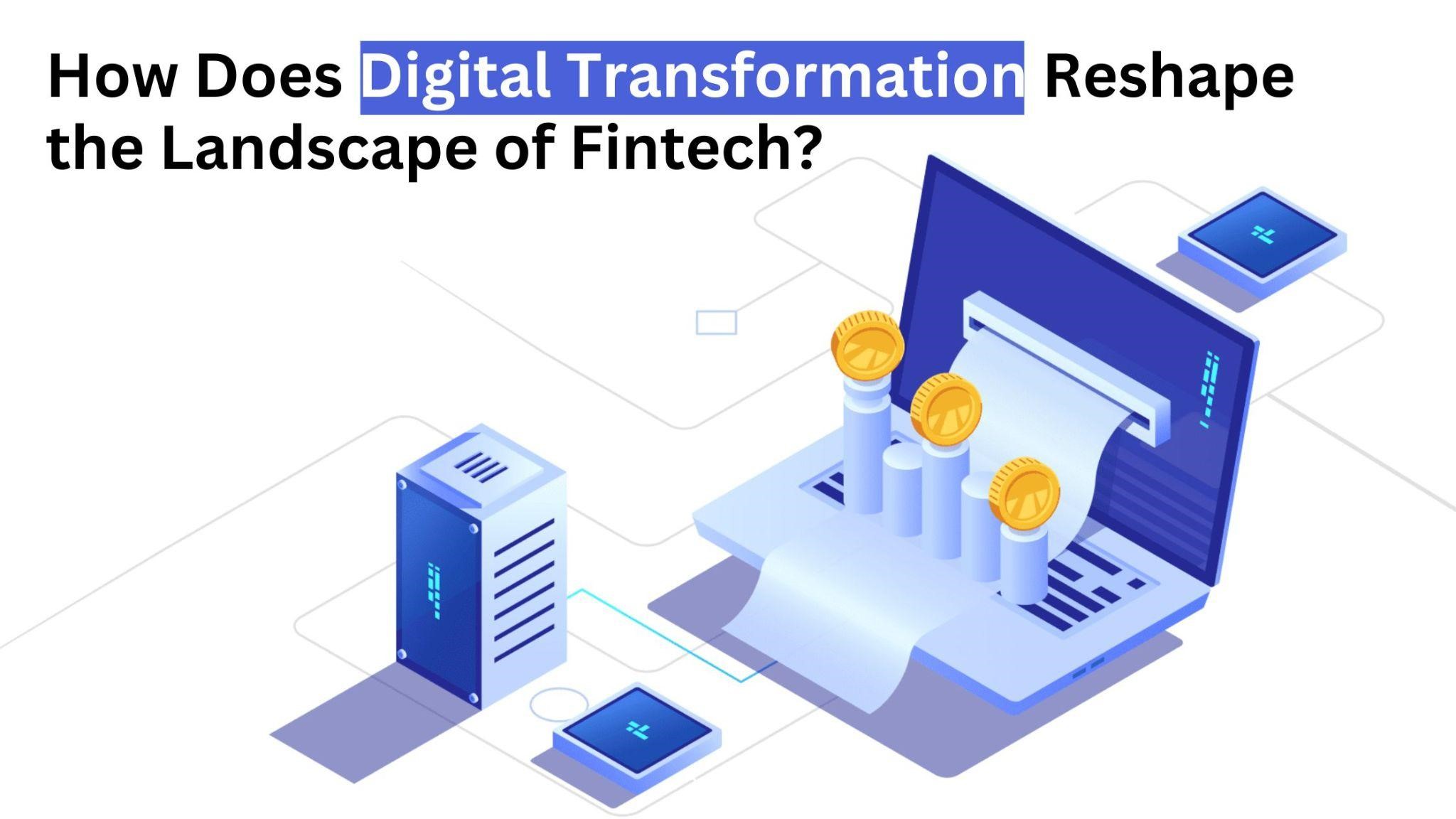The invention of online banking has caused innovation and disruption in the global fintech space and propelled fintech to the leading edge of economic innovation. Amid the ever-evolving traits of financial technology (fintech), the sector has emerged as a catalyst for reshaping conventional banking and financial services at an exceptional pace..
This blog explores the dynamic intersection of the fintech landscape’s digital revolution, compliance, and security challenges, how those factors shape business development, and how they affect the stakeholders. It also highlights the crucial role of a fintech app development company to drive sustained outcomes.
Technological Innovation in Fintech:
Digital transformation has highlighted a wave of technological innovation in fintech, empowering companies to use modern tools to reimagine financial services. From artificial intelligence (AI) and machine (ML) to blockchain and cryptocurrency, fintech companies are pushing efficiencies and overall productivity to improve security, innovation and use digital technologies in banking of today.
For instance, AI-powered chatbots and robo-advisors for personalized client communication and automated investment control have been at the forefront. At the same time, blockchain-based platforms are facilitating stable and transparent transactions.
Customer-Centricity for Evolving Needs:
Fintech companies are leading the way in connecting the growing desire of today’s customers with digital channels, mobile apps, and data analytics using tailored recommendations to resonate with modern digital-savvy customers. Whether it’s payments, frictionless account launches, or flexible budgeting tools, fintech companies deliver customer-centricity, greater brand loyalty, and experience.
Enhanced Customer Experience through Digital Channels:
Digital transformation has transformed customer interactions in the fintech space, emphasizing convenience, personalization, and accessibility. Fintech companies use best-in-class digital infrastructure, mobile applications, and AI powered algorithms to create immersive and user-friendly learning experiences. Businesses are re-thinking their go-to market strategy by partnering with professional fintech app development company and offer tech-driven solutions to their customer for better ease and engagement.
For instance, mobile banking applications such as Ally Bank’s mobile application offer capabilities including biometric authentication, real-time transaction tracking, and personal financial insights. This service empowers users to manage their finances, while fostering trust and security
Disruption of Traditional Banking Models:
Digital transformation has disrupted traditional banking systems, resulting in advancements to modern fintech app development services and practices. Additionally, digital banks featuring Varo and Monzo’s fee-free banking services, instant account transfer, and intelligent financial management tools meet the appetites of digitally savvy customers. Peer-to-peer lending platforms like Prosper and Funding Circle use online platforms to connect borrowers with investors, simplify mortgage software processes, and offer competitive interest rates
Facilitating Financial Inclusion through Digital Platforms:
Digital transformation has improved financial inclusion by presenting access to economic services for underserved populations. Mobile banking structures with M-Pesa in Kenya and GCash within the Philippines leverage the mobile age to offer peer-to-peer transfers, payments, and cash transfers. These initiatives have modified the financial landscape in rising markets and empowered people to get the entry to modern banking systems.
Additionally, microfinance programs such as Lock and Branch use data-driven algorithms to provide microloans to traders and people with no credit histories, promoting financial empowerment and financial inclusion.
Navigating Regulatory Compliance and Security Challenges
Fintech companies operate within an evolving framework of regulatory requirements that span more than one sector and dimension. Compliance obligations Know the Customer (KYC), anti-money laundering (AML), and audit security measures place stringent demands on the fintech industry as well as for a digital transformation company.
Fintech must invest in robust compliance standards and conduct customers and businesses with due diligence and strict monitoring. Businesses should also use reporting mechanisms as well by implementing rigorous monitoring and reporting mechanisms that provide for compliance satisfaction. Fintech companies should also mitigate compliance threats by building acceptance to both regulators and modern consumer demand.
Real-World Impact of Fintech Applications
From empowering underserved populations to access banking services to transforming payment systems and enhancing financial inclusion, the fintech revolution has the potential to drive positive social and economic development. It shows how to acquire, deliver, and operate financial services effectively in the real world. Global case studies of digital mobile banking systems, peer-to-peer lending, and blockchain-based solutions exemplify power shifts of digital transformation in reshaping the financial services space.
Square, Inc.: Square is a fintech company that offers payment processing, financial services, and commercial enterprise software program solutions. Through its flagship product, Square Point of Sale (POS), Square enables small businesses to accept card payments, track sales, and control inventory seamlessly. Square’s virtual transformation journey exemplifies how revolutionary fintech can empower marketers and small corporations to thrive in the virtual economic system. It also shows the crucial role of better decision making in collaborating with an experienced and professional fintech app development company to gain better outcomes.
Plaid: Plaid is a fintech company that provides APIs that enable applications to connect with users’ bank accounts. They provide statistical integrity, behavioral statistics collection, and identity verification services. Plaid’s digital transformation journey exemplifies the need for robust security measures and compliance in fintech.
While the fintech industry continues to grow and innovate, regulatory compliance and cybersecurity remain significant concerns for industry stakeholders. By simultaneously embracing digital transformation while ultimately being alert to regulatory requirements and security threats, fintech can confidently approach the regulator, building trust between consumers and regulators in the dynamic global arena of continuous economic dynamism and innovation.
Examples highlight the various strategies adopted by fintech companies to address complex compliance and security environments, whether adopting encryption and multi-factor authentication, ensuring GDPR and PCI DSS compliance so, or strengthening customer loyalty verification processes, their highlight the importance of prompt monitoring of contingencies and compliance as companies navigate the complex fintech panorama.
As the fintech sector adapts and embraces digital transformation it is also essential for businesses to remain competitive, stay on top of growth, and transform value for customers in increasingly digital globalization by selecting the right fintech app development company for their projects.
